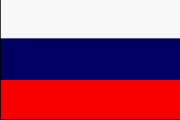





As an internal counterintelligence service, the FSB is responsible for civil counterespionage, the internal security of the Russian state, as well as the fight against organized crime.
The Soviet scale of bugging conversations of citizens was unsurpassed. In Stalin's time Beria's department monitored the telephone conversations of thousands of people, ranging from state and public figures to writers and journalists. In the Khrushchev era surveillance was substantially curtailed, with a total ban on eavesdropping on Supreme Soviet deputies, other important party or state functionary and their families without the express authorization of the CPSU General Secretary. Eavesdropping on ordinary citizens required a specific reason, such as suspicion of espionage or dissidence. Surveillance of people suspected of crimes was initiated by the USSR Deputy Minister of Internal Affairs, and required the written authorization of the Chief of the KGB 12th Directorate.
When Vadim Bakatin became leader of the KGB in 1991, he stated in a public interview that [apart from collection against foreign agent networks, foreign drugs couriers, and similar external targets] the KGB's technical resources allowed the simultaneous tapping of no more than 500 Russians. Cost was one limiting factor, since six operators are needed for round-the-clock tappingm which with associated expenditure brings the annual cost of monitoring a single subject to upwards of 200 million rubles [at 1997 prices]. Informants in organizations of interest to the special services [the defense industry, scientific institutions, transport centers, ministries, or editorial offices] are frequently an easier and less expensive means of obtaining information than organizing tapping.
Currently obtaining permission to monitor telephone conversations requires the presentation to a court of material supporting an investigation. With the approval of a judge, FSB department carrying out the investigation prepares written instructions for tapping. Premises used for tapping are subject to a maximum secrecy regime, and officers are prohibited from visiting the FSB's main building in the Lubyanka. These precautionary measures have been taken to preclude criminal or commercial compromise of FSB surveillance operations. A supervisory prosecutor can arrive without warning wherever FSB officers are carrying out tapping and check which telephone numbers are being monitored at that time and whether the relevant permission has been granted. Despite these precautions, even FSB officers fear tapping, and particularly do not trust the municipal telephones installed in their offices.
Under the revised law on Russian foreign intelligence of January 1996, the FSB is also authorized to work outside Russia in certained target areas in cooperation with the Russian foreign intelligence services. The FSB is also seeking expanded cooperation with the intelligence and secret services of the other former Soviet republics. In September 1996 the managers of most CIS secret services initiated an information system for their managers of the security organs and special services to improve the communication between the involved Secret services. A central data bank was esablished in September 1996 at the FSB which serves to support the fight against organized crimine.
During the Soviet period, the KGB was the arbiter of state secrets, and the FSB has regained considerable operational and legal authority for controlling state secrets. In September 1995, FSB Chief General Barsukov was named deputy chairman of a new State Committee to Control State Secrets and given authority to define state secrets and to protect them using newly countenanced counter-intelligence operations.
Harassment of domestic critics, ecologists and certain other groups indicate a resurgence of FSB internal power. The nation's leadership appears to be increasing its political support for the FSB. This may enable it to reestablish its bureaucratic authority over security and CI. In addition, the expulsion of a British businessman and the press articles highlighting the need for a stronger FSB suggest that the FSB will also take a harder line against Western commercial or academic research in Russia.
On 01 December 1999 the Duma votee to expand the rights of the Federal Security Service (FSB) in combating terrorism and mass disturbances. It adopted a bill amending and supplementing Articles 13 and 15 of the law "On Federal Security Service bodies in the Russian Federation". The document, passed unanimously by 356 deputies, said that FSB organs may cordon off sectors of a locality or facilities to put a stop to acts of terrorism and mass disturbances, as well as during the search for persons who escaped from places of detention and the prosecution of persons suspected of committing crimes, the preliminary investigation of cases in charge of FSB bodies and the inspection of transport vehicles as necessary.FSB bodies are instructed to take measures to ensure the normal life of the population. Under the new law, FSB bodies can also restrict or prohibit travel by citizens and vehicles over individual areas and to oblige citizens to stay in these areas or leave them to protect their life, health and property.